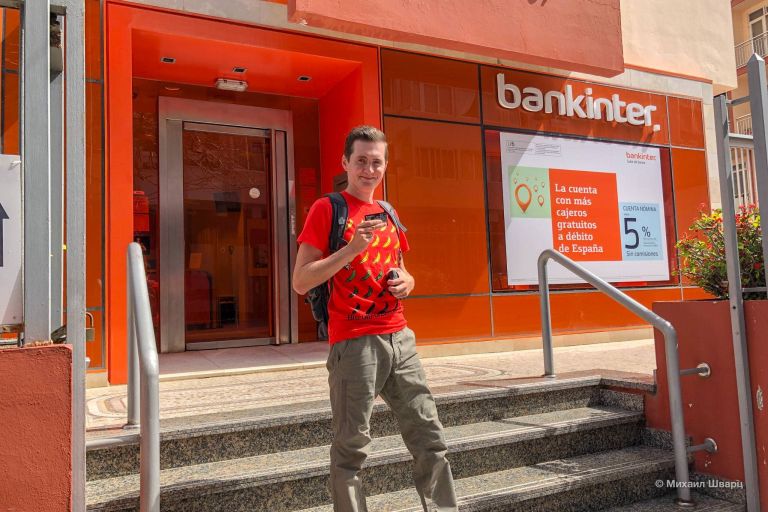
Imagine you come to a Spanish restaurant and see two unfamiliar dishes on the menu: «Autónomo» and «SL». Sounds mysterious, doesn’t it? Don’t rush to Google, I’ll explain everything to you. These are the two main types of legal entities in Spain. Let’s break down each «dish» separately.
1. Autónomo – a simple recipe for beginners
Autónomo is like our own sole proprietorship, just in Spanish. If you’ve decided to start your own business in Spain and want to avoid unnecessary headaches, then autónomo is your choice.
Imagine this: you go to the tax office, say «I want to become an autónomo,» and they reply «No problem, amigo!» No complicated schemes, minimum red tape. One type of activity, one simple tax form. Beautiful!
But there’s one nuance. By becoming an autónomo, you’re responsible for your business with all your assets. Your apartment, car, even your beloved parrot. Of course, it probably won’t come to the parrot, but be prepared that in case of business failure, you’ll have to part with your hard-earned property.
2. SL: for those who like it more complex
If autónomo is a simple salad, then SL is a full business lunch. It’s like our LLC, but again in Spanish.
For example, you’ve assembled a dream team and want to conquer the Spanish market together. Then SL is your format. You can even take the entire Spanish national football team as partners (just make sure they’re okay with it first).
And in SL, you can engage in anything. Want to sell jamón, teach flamenco, and develop mobile apps simultaneously? No problem! List up to 100 types of activities, just don’t get confused yourself.
But where would we be without bureaucracy? An administrator is mandatory in SL. This can be one of the founders or an employee. The main thing is that they’re ready to handle all the paperwork, reports, and other joys of entrepreneurship.
But with SL, you can optimize taxes. Buy computers, rent an office, fly to the Caribbean for inspiration – all this can be accounted as expenses. Just don’t overdo it, or the tax office might not approve of your «business ideas.»
3. Taxes: how much you have to give to the state
I know, I know, talking about taxes isn’t much fun. But where would we be without them? Let’s see how much you have to pay the Spanish treasury depending on the type of legal entity chosen.
If you’re an autónomo, it’s simple. You take your income (revenue minus expenses), and you pay tax on that amount. I’m giving a rough calculation; the tax rate varies depending on the province. Small amount — up to 27,000 euros a year? Great, you give 21% and sleep peacefully. Earning more? Then you’ll have to shell out 24%, or even up to 36%. A progressive scale, what can you do.
But if you have an SL, it’s a different story. You have to pay tax on profit, not income. This means you account for all business-related expenses. Bought a new printer? Recorded as an expense. Went to a conference in Barcelona? Also an expense. Just don’t forget to document all this, or the tax office might not believe you were working on the beach and not just sunbathing.
Speaking of expenses. It all depends on the type of activity. If you’re a programmer, you can deduct a new MacBook and a Stack Overflow subscription. And if you’re a chef, consider the cost of ingredients and a new stove. Just don’t try to deduct your new Ferrari, even if you really do drive it to business meetings.
4. Autónomo or SL: the choice is yours
Time to make a choice. But don’t rush, weigh the pros and cons.
If you’re just starting your business and want to do it quickly and simply, then autónomo is the optimal choice:
- Minimum bureaucracy,
- simple tax system.
- True, you’ll be liable with all your assets.
But if you already have a team of like-minded people and big plans for the Spanish market, then SL can become your reliable partner. Yes, you’ll have to deal with paperwork and reports, but you can optimize taxes and safely scale your business.
My advice is to start with autónomo, and then, if things go well, you can always switch to an SL. Or vice versa, try an SL, and if you don’t like it, take a step back to autónomo.
The main thing is not to forget that doing business in Spain is not only about legal entities and taxes. It’s also about siesta, tapas, and conversations with partners over a glass of wine. So enjoy the process and remember that you are now in one of the most beautiful countries in the world.
And if you suddenly get confused by the intricacies of Spanish laws — don’t hesitate to consult professionals. A good gestor (it’s like our accountant, only sounds cooler) will always help you figure things out and choose the best option for your business.
Если вам нужна помощь в получении ВНЖ Цифрового Кочевника, ВНЖ по Стартапу, открытие аутономо, оптимизация налогов и ведение бух.учета, студенческая виза, то пишите нам в Телеграм:
5. Gestor: your guide in the world of Spanish business
So, you’ve decided on the type of legal entity. But what’s next? How do you navigate all these taxes, reports, and other joys of entrepreneurial life? Don’t panic, amigos, you have a secret weapon — the gestor.
The gestor is like your personal financial guru. He knows everything about taxes, laws, and bureaucratic nuances. But finding your own gestor is every entrepreneur’s dream.
Of course, you can look for a Russian-speaking specialist. But be prepared that in the field of startups and remote work, there are not yet many such experts. After all, Spain is a country of traditions, and local accountants have not yet fully mastered the digital world.
My advice to you is not to chase «your» gestor. Find someone who works nearby, and confidently explain to them the specifics of your business. Yes, you might have to brush up on your Spanish a bit. But trust me, it’s worth it.
Don’t be afraid to ask your gestor a bunch of questions. Ask about expenses that can be accounted for, tax optimization, crypto, anything that you don’t understand. The more you communicate, the better the gestor will understand your business and be able to give valuable advice.
But remember, amigos, the final decision is always yours. Gestores in Spain are cautious and don’t like taking on extra responsibility. So if they tell you «this can be done, and this can’t» — don’t hesitate to make your own decisions. After all, it’s your business and your money.
But with a good gestor, you can sleep peacefully, knowing that all your financial affairs are in order. And you’ll have more time to enjoy your business and the beautiful life in Spain.
6. Starting a business in Spain is just the beginning
Now you know all about legal entities, taxes, and gestores. Can you confidently set out to conquer the Spanish market? Don’t rush, it’s just the beginning of a big adventure.
Starting your business in Spain is like learning to cook paella. You have all the ingredients, the recipe seems clear, but will it be as delicious as the locals’?
The hardest part is not the paperwork or finding a gestor. The main challenge is to attract clients and make yourself known in the market. You can be a business genius three times over, but if no one knows about you, your talents won’t be worth much.
By the way, if you suddenly feel like you need help with starting a business or calculating taxes — don’t hesitate to seek assistance from professionals. Spain has excellent accelerators and business incubators that will help you understand all the nuances and avoid typical mistakes.
Если вам нужна помощь в получении ВНЖ Цифрового Кочевника, ВНЖ по Стартапу, открытие аутономо, оптимизация налогов и ведение бух.учета, студенческая виза, то пишите нам в Телеграм:
So go ahead, conquer the Spanish market and remember — you are now part of the big and friendly family of Spanish entrepreneurs. This means great things await you. Suerte, amigos!




